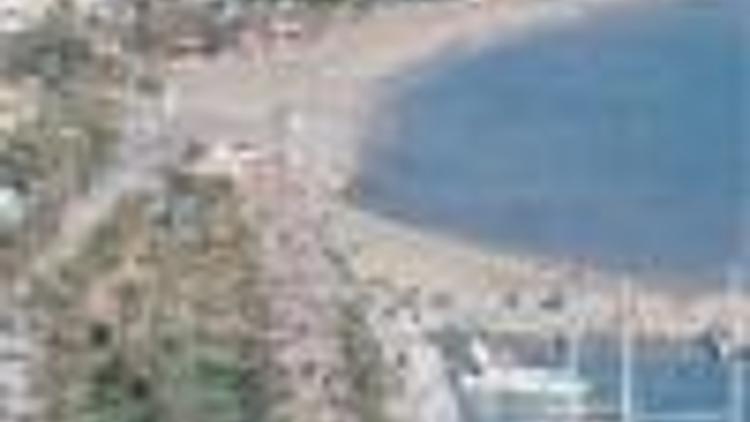Expat rush to sell property debated
Güncelleme Tarihi:

ISTANBUL - Some realtors claim foreigners are rushing to sell their properties in Turkey due to the global economic crisis, but others disagree. This is an action taken purely for profit, says one realtor, while another denies reports on foreigners pulling out of Turkey. ’Very recently many foreigners approached us with the intention to buy,’ says the top executive of a leading realtor
A tendency to sell previously bought properties is on the rise among expatriates in Turkey, but realtors and other experts disagree about the cause.
While some realtors say the reason is a new law that was approved in July to limit the amount of property a foreigner can own in Turkey, others claim the sales are due to the global economic crisis. Others disagree, claiming the only reason behind the sales is the chance to profit.
"The economic crisis has nothing to do with the situation," said Osman Coşkun, president of the Association of Realtors in Didim. "In 2004 foreigner’s purchases of property were facilitated. Many foreigners bought real estate at the time. Within the past five years, nearly 10,000 foreigners purchased estates. Prices were very tempting. They would have sold their properties even if there was no crisis."
"Even in times of crisis, those who have money come here to invest in property," said Müslüm Yıldırım, vice president of the Association of Realtors in Kuşadası. Realtors in Bodrum also agree that many foreigners are selling their properties in Turkey for profit.
Market still attractive
Başak Soner, a board member of TURYAP, a leader in the property marketing business in Turkey, on the other hand, said the number of foreigners selling their properties in Turkey is "limited." Currently TURYAP is constructing residential estates in 10 cities, said Soner, adding that foreigners are the main targets.
"We have hired staff that will focus on foreigners. We advertise in Russia and in the former Warsaw Pact countries. Potential customers from Sweden visited us in March. They said they may consider buying at a convenient price," Soner said. "We have never mediated in sales, but I can easily say that there is no significant decline in the number of foreigners coming to Turkey to purchase property."
Many foreigners who originally arrive to Turkey as tourists have purchased property in cities such as Antalya, Muğla, Aydın, İzmir and Istanbul. There actually are tens of thousands of foreigners who have set up their own communities in the southern cities of Alanya, Kemer, Side, Kaş, Fethiye or the Aegean city of Didim.
But a new law, which went into effect July 17, brought limitations to property sales to foreigners. According to some sector representatives, these limitations caused a slowdown in the number of foreigners looking to invest in property.
Soner said she disagrees with that. "Brits are still purchasing in Fethiye," she said. "We have three projects in Kuşadası. The prices begin from 45,000 Turkish Liras. Brits, Swedish, German and French buyers prefer luxury. Swedish potential buyers came around some time ago. They were highly interested in the Story Residence, which is being built in Beylikdüzü, Istanbul. Pre-reservations were made to see seven residences at the Story Residence."
According to the law passed by Parliament, foreigners and foreign foundations are able to own up to 10 percent of land within a building scheme. In case foreign companies are liquidated in Turkey, the law imposes certain limitations that enable foreigners to buy land in "strategic and important areas" only with special permission. All foreigners seeking to purchase property in Turkey have to get governor approval. The Cabinet is authorized to determine the sales of land in areas of importance to water, mining and energy supplies or on religious and historical sites.
Foreign ownership of real estate in restricted military areas is possible only with permission from the Office of the Chief of Staff, while property in security areas is purchasable by foreigners only with special permission from the governor's office. The new law also limits foreign ownership of immovables in Turkey to 2.5 hectares. The new law allowed the Office of the Register of Deeds to reject the applications of citizens of the countries that do not have reciprocity with Turkey. It will soon be much easier for Arabs and the citizen of Turkic republics to purchase properties in Turkey.

